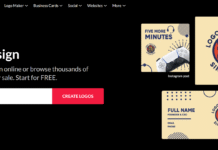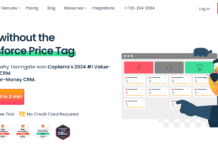The United Arab Emirates has become one of the most dynamic and competitive environments for digital innovation, technology adoption, and startup creation. Over the past decade, Dubai has positioned itself as a global center for entrepreneurship due to its strategic geographic location, advanced digital infrastructure, government-backed incentives, and significant access to regional and international capital. These advantages have helped accelerate the rise of many successful startups in UAE across sectors such as fintech, mobility technology, cloud kitchens, logistics, agritech, and digital services.
This article provides an in-depth review of ten leading companies that illustrate how successful startups in UAE leverage innovation, operational discipline, and scalable business models to build long-term competitive advantage. Each company name links to its official website, and the analysis highlights the strategic mechanisms that enable them to thrive in one of the fastest-growing innovation ecosystems worldwide.
1. Kitopi – Cloud Kitchen Technology and Operational Scale

Kitopi Overview
Kitopi is widely recognized as one of the most influential successful startups in UAE due to its role in transforming the regional food delivery and cloud kitchen ecosystem. With its headquarters in Dubai, the company developed a sophisticated smart kitchen operating system that supports both global restaurant brands and emerging virtual kitchen concepts.
Kitopi Operational Strength
Central to Kitopi success is its managed cloud kitchen model. Through centralized production facilities, Kitopi reduces operational friction for restaurant partners while providing high-quality output at scale. Artificial intelligence, demand forecasting, inventory automation, and real-time kitchen monitoring allow the company to operate with precision and efficiency.
Kitopi Ecosystem Role
Kitopi has expanded across the GCC, supported by strong investor confidence and a proven ability to scale. Its leadership demonstrates how successful startups in UAE can establish infrastructure-level companies that reshape entire industries.
2. Tabby – Fintech BNPL Innovation and Consumer Finance Growth
Tabby Overview
Tabby is one of the most disruptive successful startups in UAE and the leading Buy Now Pay Later platform in the Middle East. By enabling consumers to split payments into interest-free installments, Tabby has fundamentally changed regional purchasing behavior.
Tabby Business Model
The platform partners with thousands of retailers across electronics, fashion, home goods, beauty, and lifestyle categories. Revenue is generated through merchant fees and financial partnerships that support large-scale credit underwriting.
Tabby Market Expansion
With millions of active users, Tabby demonstrates how successful startups in UAE can scale digital payment solutions across borders while maintaining a strong regional identity and brand presence.
3. Careem – Super App Ecosystem and Mobility Innovation
Careem Overview
Careem is one of the most iconic successful startups in UAE and continues to shape the region’s digital economy even after its acquisition by Uber. The company maintains independent operations and continues to expand into a multi-service super app.
Careem Product Ecosystem
Originally built as a ride-hailing platform, Careem now offers food delivery, grocery delivery, parcel services, bike rentals, and digital payments. This integrated ecosystem increases user engagement and creates new revenue streams.
Careem Strategic Significance
Careem remains a benchmark for understanding how successful startups in UAE can scale across multiple markets, navigate regulatory environments, and sustain long-term innovation.
4. Pure Harvest Smart Farms – Agritech for Sustainable Production
Pure Harvest Overview
Pure Harvest Smart Farms is one of the most advanced agritech startups in the region and a key example of how successful startups in UAE address national environmental and food security challenges. Through controlled environment agriculture, the company produces high-quality fruits and vegetables in harsh desert conditions.
Pure Harvest Technology
The company uses AI-driven climate systems, hydroponics, water recycling, and advanced monitoring tools to ensure stable production year-round. This approach reduces dependency on imported produce and increases regional food sustainability.
Pure Harvest Market Impact
Pure Harvest has secured substantial international investment and continues expanding facilities across the Gulf, reinforcing the UAE reputation as a leader in climate-resilient innovation.
5. CAFU – On-Demand Fuel Delivery and Smart Mobility Services
CAFU Overview
CAFU is one of the fastest-growing successful startups in UAE, offering fuel delivery, car washing, oil changes, and vehicle maintenance through an easy-to-use mobile app. By eliminating the need for customers to visit fuel stations, CAFU has redefined convenience for vehicle owners across Dubai.
CAFU Operational Model
The service uses real-time route optimization to reduce operational costs while delivering services efficiently. Its mobile-first model aligns perfectly with consumer expectations in the UAE, where rapid adoption of convenience technologies has become a defining trend.
CAFU Ecosystem Influence
CAFU demonstrates how successful startups in UAE can create service models that improve efficiency, reduce friction, and shape the future of urban mobility.
6. Huspy – Proptech Transformation in Real Estate Financing
Huspy Overview
Huspy is a proptech platform that simplifies home-buying and mortgage processes in the UAE. Its rapid growth positions it among the most innovative and successful startups in UAE, particularly in the real estate technology sector.
Huspy Value Proposition
The company provides digital tools for comparing mortgage products, connecting with real estate agents, managing documentation, and guiding buyers through each step of the process. Huspy reduces structural inefficiencies typically associated with property financing.
Huspy Market Adoption
Through strategic partnerships with banks and real estate agencies, Huspy has built one of the most trusted digital home-buying ecosystems in Dubai.
7. Baraka – Retail Investment and Accessible Wealth Technology
Baraka Overview
Baraka is a financial technology company offering a commission-free investment platform for retail investors across the Middle East. It has established a strong presence among successful startups in UAE due to its mission of democratizing access to global financial markets. Baraka enables users to trade stocks, ETFs, and investment products while providing financial education and accessible market insights.
Baraka Market Position
One of the defining strengths of Baraka is its ability to simplify investment participation for first-time and mid-level investors. As the UAE sees rapid growth in personal finance awareness, Baraka has positioned itself as a modern wealth-building tool for a new generation of investors.
Baraka Technology and Experience
The platform offers real-time data, regulatory compliance, educational content, and user-friendly navigation designed specifically for regional investors. Through transparency-focused design, Baraka addresses a major gap in financial literacy and accessibility.
Baraka Strategic Impact
Baraka represents the evolution of fintech within the UAE and highlights how successful startups in UAE can reshape long-standing financial norms by developing consumer-first technology.
8. Yalla Group – Social Entertainment and Voice-Centric Digital Communities
Yalla Group Overview
Yalla Group is one of the most unique digital platforms among successful startups in UAE. Headquartered in Dubai and publicly listed on the New York Stock Exchange, the company specializes in voice-based social networking and entertainment experiences for users across the Middle East and North Africa.
Yalla Group Platform Dynamics
The platform offers voice chat rooms, group sessions, games, and live interactive spaces where users can communicate in culturally relevant formats. This focus on voice-centric interaction differentiates Yalla Group from conventional social media platforms.
Yalla Monetization Model
Revenue is generated through in-app purchases, virtual gifts, and premium features. This model has proven extremely effective in regions with strong cultural alignment around social gatherings and community-based interactions.
Yalla Group Ecosystem Role
As digital entertainment continues to expand, Yalla Group demonstrates the potential for successful startups in UAE to scale consumer applications to millions of users while maintaining strong engagement and monetization.
9. Floward – Online Gifting and Integrated Logistics
Floward Overview
Floward is a leading online gifting and fresh flower delivery platform with significant operations in Dubai. The company differentiates itself through its vertically integrated model, controlling sourcing, fulfillment, and final delivery. These operational strengths have positioned Floward among the most rapidly expanding successful startups in UAE.
Floward Business Model
Unlike general marketplaces, Floward manages the entire value chain, allowing it to maintain quality control and timely deliveries. This model gives the company a competitive edge in occasions-driven commerce, where reliability and presentation are essential factors.
Floward Growth Trajectory
The company has scaled across more than 30 cities in multiple countries. By combining ecommerce, logistics, and brand experience, Floward has created a strong emotional and cultural connection with consumers.
Floward Strategic Importance
Floward exemplifies how successful startups in UAE can integrate supply chain technology with user experience to achieve exceptional customer loyalty and international scalability.
10. Washmen – Logistics Tech for Laundry and On-Demand Cleaning
Washmen Overview
Washmen is a highly operationally disciplined company offering on-demand laundry and cleaning services through a fully digital model. It is one of the most innovative successful startups in UAE due to its advanced logistics infrastructure and centralized processing facilities.
Washmen Operational Excellence
Washmen handles the entire workflow, including collection, sorting, cleaning, packaging, and return delivery. Integrated routing technology, automation, and operational dashboards ensure consistent quality and efficient turnaround times.
Washmen Value Proposition
The company appeals to both residential users and corporate clients who seek reliability, convenience, and predictable service quality. Washmen growth aligns with the broader consumer shift toward app-based lifestyle services in Dubai.
Washmen Ecosystem Contribution
Washmen illustrates how successful startups in UAE can combine logistics, automation, and mobile-first customer experience to create sustainable, long-term service models.
The UAE Startup Ecosystem: Why These Companies Thrive
Economic Infrastructure Supporting Growth
The UAE has intentionally built a world-class economic environment designed to support venture creation. Free zones, streamlined regulations, tax incentives, and global investor access allow successful startups in UAE to operate with significantly lower friction compared to other emerging markets.
Government Vision and Policy
National initiatives focused on digital transformation, artificial intelligence, sustainability, and economic diversification directly accelerate the growth of successful startups in UAE. Programs such as the Dubai Future Foundation, Abu Dhabi’s Hub71, and various sector-focused incubators help founders scale faster.
Cross-Border Scalability
A defining trait of successful startups in UAE is the ability to expand across markets in the Middle East, North Africa, Europe, and Asia. The UAE strategic location and global connectivity make it an ideal base for companies seeking multinational operations.
Capital Availability and Venture Funding
The UAE attracts venture capital from regional funds, sovereign entities, global investment firms, and corporate venture arms. This funding environment creates a powerful engine for innovation and makes the UAE a preferred launchpad for scalable technology companies.
Talent and Workforce Diversity
With over 200 nationalities represented in the UAE workforce, successful startups in UAE benefit from unparalleled cultural diversity, multilingual capability, and international skill sets. This creates a talent ecosystem that supports product development, operations, marketing, engineering, and leadership at global standards.
Adoption of Emerging Technologies
The UAE is one of the earliest adopters of technologies such as artificial intelligence, cloud architecture, robotics, fintech systems, and sustainable engineering. This openness gives successful startups in UAE the ability to embed cutting-edge tools into their business models faster than competitors in traditional markets.
Consumer Behavior and Market Maturity
Customers in the UAE are highly receptive to digital services, particularly in mobility, ecommerce, fintech, and app-based convenience solutions. High smartphone penetration and demand for premium service experiences provide a fertile environment for rapid startup adoption.
Strategic Patterns Across the 10 Successful Startups in UAE
Technology as a Core Value Driver
Every company featured in this article uses technology as a central component of its operational model. Whether through logistics optimization, AI-driven agriculture, fintech automation, or mobile-first service delivery, successful startups in UAE rely on digital systems to create measurable performance improvements.
Vertical Integration and Operational Control
A recurring characteristic among successful startups in UAE is vertical integration. Floward manages its entire gifting supply chain. Kitopi centralizes food production. Washmen controls the full laundry process. This approach reduces risk, improves quality, and strengthens brand consistency.
Multi-Market Strategies
From Careem super app expansion to Floward multi-country presence, successful startups in UAE prove that regional demand can be scaled efficiently when supported by strong operational frameworks.
Customer-Centric Product Philosophy
Each startup focuses heavily on user experience. Tabby reduces purchasing friction. CAFU saves time through mobile convenience. Huspy simplifies complex real estate transactions. This customer-first orientation differentiates successful startups in UAE from traditional market players.
The evolution of the UAE startup ecosystem has reached a stage where infrastructure, investment, policy, and human capital collectively form one of the most synchronized innovation environments in the world. As global markets undergo rapid transformation driven by AI adoption, digital commerce acceleration, and changing consumer expectations, the UAE has emerged as a strategic hub capable of supporting companies that are built for regional and international expansion. The rise of successful startups in UAE is not merely a result of funding availability;
it is the outcome of deliberate national strategy rooted in diversification, technology-forward governance, and long-term economic resilience. Dubai, Abu Dhabi, and emerging innovation districts across the country have implemented regulatory frameworks that reduce friction for founders and encourage experimentation at levels rarely observed in other developing ecosystems. These environments allow companies like Kitopi, Tabby, Careem, Pure Harvest, Floward, CAFU, and others to operate with speed, autonomy, and global ambition. The UAE has established a foundation where the startup lifecycle from incorporation to scaling across markets happens with a clarity and efficiency that attracts entrepreneurs from every part of the world.
This momentum is further accelerated by the UAE’s unique approach to cross-border scalability. Unlike ecosystems constrained by domestic market size, successful startups in UAE operate with the expectation that expansion into Saudi Arabia, Qatar, Kuwait, Bahrain, and the wider MENA region is a default component of growth. This regional mindset creates companies engineered for multi-market operations from day one. Their product models, logistics frameworks, regulatory compliance processes, and brand architectures are designed for adaptability,
which is why so many UAE-founded startups successfully penetrate additional markets faster than global competitors. Another defining feature is the UAE’s integration of emerging technologies into everyday business infrastructure. Government platforms, banks, logistics providers, real estate networks, and consumer service companies actively adopt digital tools, giving startups access to technology-ready markets. This allows founders to experiment with AI-driven personalization, automation, blockchain-based verification, precision agriculture, fintech rails, and advanced logistics without the limitations typically found in early-stage ecosystems.
The culture of collaboration across public and private sectors also plays a central role. Corporate partnerships, accelerator programs, strategic government alliances, and university collaborations help turn ideas into commercially viable products. Initiatives such as AI economic frameworks, smart city programs, digital identity systems, and national cloud transformation have created demand for innovative solutions, enabling successful startups in UAE to grow in alignment with national priorities.
These synergies strengthen the long-term sustainability of ventures and reduce the risk of early-stage failure. In addition, the UAE’s global workforce is a powerful catalyst for innovation. Access to multilingual, highly skilled talent from over 200 nationalities gives companies a competitive advantage in product development, customer experience, cultural intelligence, and market expansion. This diversity directly influences the creativity, agility, and problem-solving capabilities of UAE-based startups, contributing to their superior performance metrics compared to regional competitors.
Capital availability remains another major driver of scale. Sovereign funds, regional VCs, corporate venture arms, and global investors consistently view the UAE as a low-risk, high-opportunity environment for early and growth-stage investments. This influx of capital enables successful startups in UAE to allocate resources toward technology development, talent acquisition, marketing expansion, and operational optimization. It also allows founders to adopt long-term strategies rather than short-term survival tactics. As a result, the UAE is now home to some of the region’s fastest-growing unicorns and future-unicorn candidates. The country’s strategic commitment to entrepreneurship is documented in numerous frameworks and economic roadmaps, many of which can be further explored through resources such as the innovation insights available at Startupik Top Category.
Looking ahead, the UAE’s position as a global innovation hub will continue to strengthen due to the alignment between digital transformation, regulatory modernization, and sector-specific opportunities in fintech, agritech, healthtech, logistics technology, AI-driven enterprise solutions, and consumer super apps. The trajectory of successful startups in UAE suggests that the next phase of growth will involve deeper integration of artificial intelligence, advanced automation, sustainable technology infrastructure, and cross-border digital trade.
Startups operating within this environment will not only shape the economic future of the Middle East but also influence global standards for technology-driven development. This holistic ecosystem—supported by strategic government initiatives, corporate partnerships, accelerated technology adoption, and a visionary entrepreneurial culture—positions the UAE as one of the most important innovation centers of the next decade.
Conclusion
The rise of successful startups in UAE reflects a broader transformation happening across the Middle East, where technology-driven companies are reshaping entire industries and redefining consumer expectations. Dubai remains at the center of this transformation due to its strong economic fundamentals, visionary leadership, and robust technology infrastructure.
The ten companies analyzed in this article demonstrate excellence in execution, innovation, scalability, and customer engagement. Their impact extends beyond commercial success; collectively, they represent the blueprint for the next generation of regional entrepreneurship. As global interest in the UAE startup ecosystem continues to expand, these successful startups in UAE will play an increasingly influential role in shaping economic growth, technological advancement, and long-term competitiveness.

























































